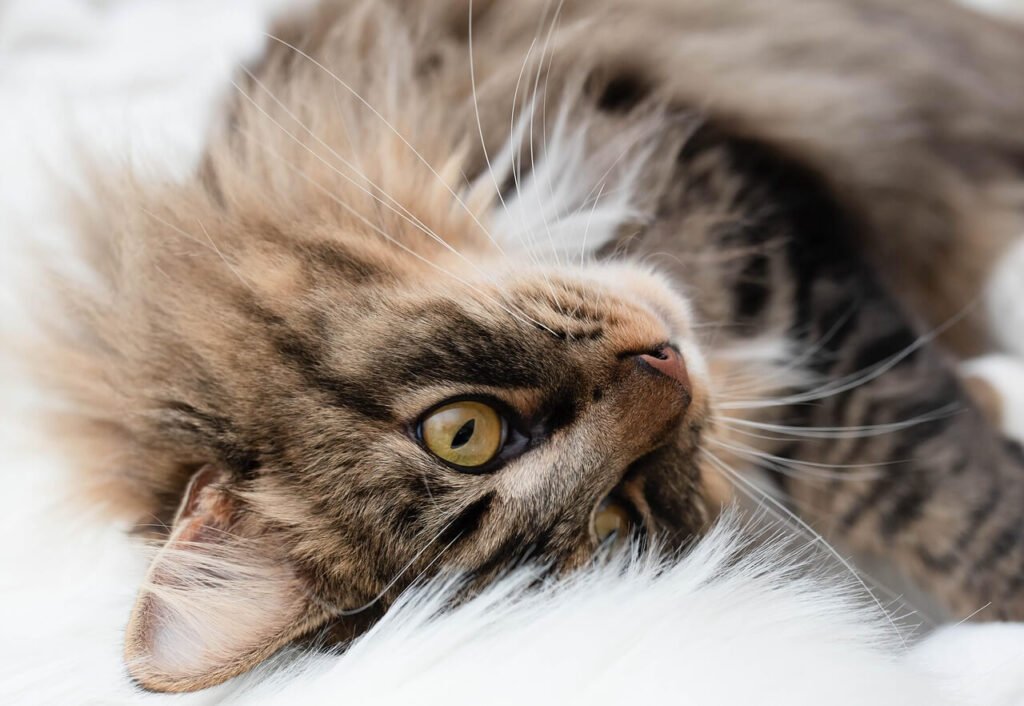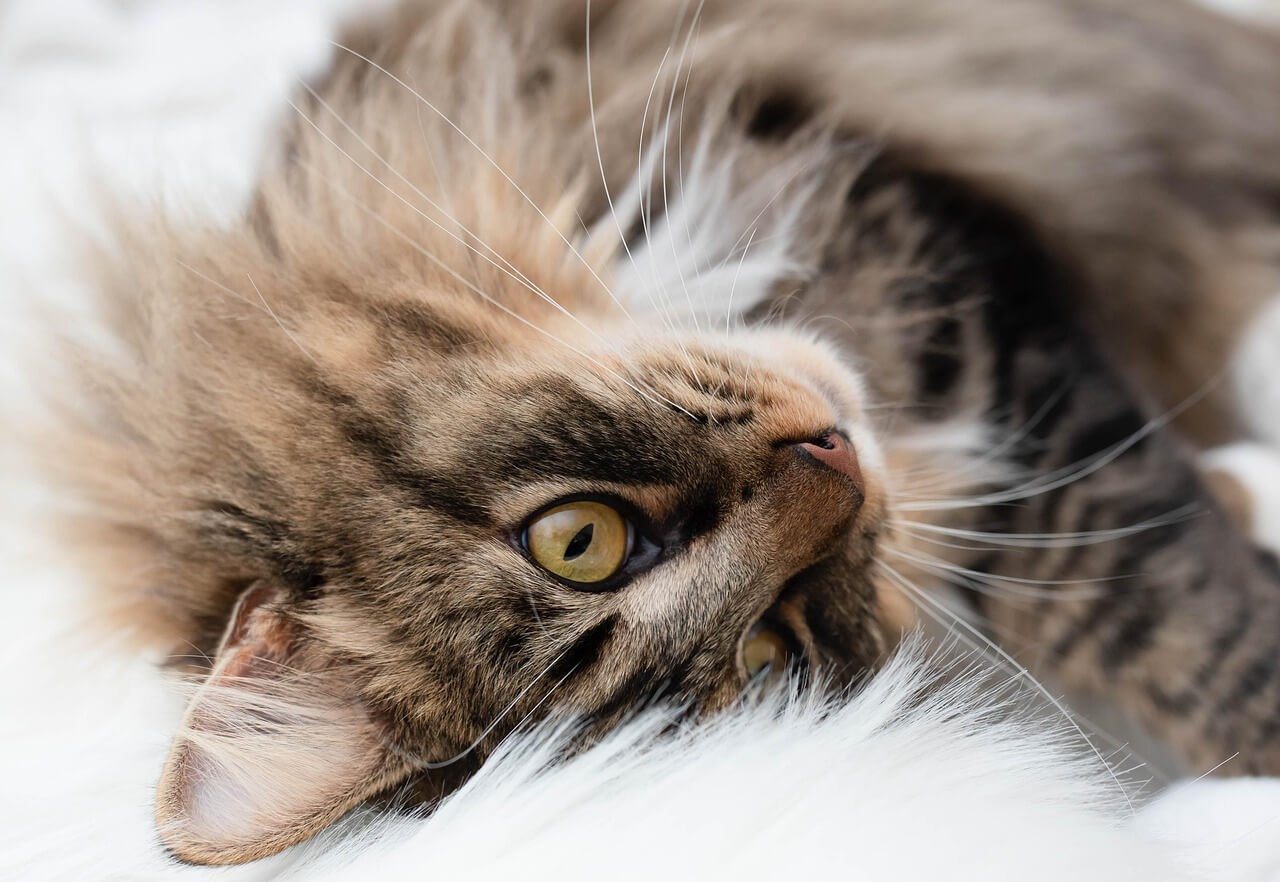Cat Snoring While Awake: Is It Normal or Cause for Concern?
Cats are known for their quirky behaviors, but hearing your feline friend snore while awake can be surprising—and even a little concerning. Unlike humans, cats don’t typically snore unless they’re in a deep sleep, so this unusual sound might leave you wondering what’s going on. While occasional snoring during wakefulness is often harmless, it can sometimes indicate an underlying issue that requires attention. In this article, we’ll explore the reasons behind cat snoring while awake, how to identify normal versus abnormal causes, and what steps you can take to ensure your furry companion stays healthy and happy.
Why Is My Cat Snoring While Awake? Understanding the Triggers
Snoring in cats, whether awake or asleep, is usually caused by restricted airflow in the nasal passages or throat. When it happens while your cat is awake, there could be several explanations. Here are some common causes to consider:
Nasal Congestion :
A stuffy nose due to allergies, infections, or foreign objects can lead to noisy breathing.Upper Respiratory Infections :
Viral or bacterial infections can cause inflammation, resulting in snoring-like sounds.Polyps or Growths :
Abnormal growths in the nasal cavity or throat may obstruct airflow and cause snoring.Brachycephalic Breed Characteristics :
Flat-faced breeds like Persians are more prone to snoring due to their shortened airways.Relaxation of Throat Muscles :
Cats lounging in certain positions may temporarily relax their throat muscles, leading to snoring.
While many of these causes are benign, persistent or severe snoring should always be evaluated by a veterinarian to rule out serious conditions.
When Snoring Indicates a Health Problem: Red Flags to Watch For
Not all instances of snoring are cause for alarm, but some signs suggest your cat’s snoring could be linked to a medical issue. Recognizing these red flags early can help you address potential problems promptly.
Difficulty Breathing :
Labored or rapid breathing alongside snoring may indicate respiratory distress.Frequent Sneezing or Nasal Discharge :
Persistent sneezing or discharge (especially if discolored) points to possible infection or blockage.Loss of Appetite :
If your cat refuses food due to discomfort or difficulty smelling, it could signal a deeper issue.Lethargy or Weakness :
Unusual tiredness or lack of energy may accompany respiratory problems.Gagging or Coughing Fits :
These symptoms paired with snoring could mean something is lodged in their airway.
If you notice any of these signs, it’s essential to consult a vet as soon as possible. Early intervention can prevent complications and ensure your cat’s well-being.
Check this guide 👉The Mysterious World of Cat Yowling: Best 7 Expert Tips!
Check this guide 👉Why Does My Cat Sound Congested? Best 7 Expert Tips!

Possible Causes of Snoring | What You Can Do About It |
|---|---|
Nasal congestion from allergies | Keep your home clean and free of irritants |
Upper respiratory infections | Monitor symptoms; seek veterinary care |
Polyps or abnormal growths | Schedule a vet exam for diagnosis |
Brachycephalic breed characteristics | Provide cool, well-ventilated spaces |
Relaxed throat muscles during rest | Adjust sleeping positions for comfort |
How to Minimize Snoring in Your Cat
If your cat’s snoring isn’t caused by a serious health issue, there are practical steps you can take to reduce its frequency and severity. These tips focus on improving your cat’s environment and overall health.
Keep Their Environment Clean :
Regularly dust and vacuum to minimize allergens that could irritate their nasal passages.Maintain Proper Hydration :
Ensure your cat has access to fresh water to keep their nasal passages moist.Provide a Humidifier :
Adding moisture to the air can ease breathing, especially in dry climates or during winter months.Encourage Safe Playtime :
Gentle exercise helps strengthen respiratory muscles and improves airflow.Adjust Sleeping Positions :
Elevating your cat’s head slightly with soft pillows can help open their airways.
By implementing these strategies, you can create a healthier environment for your cat and potentially reduce episodes of snoring.
Proactive Steps to Protect Your Cat’s Respiratory Health
Prevention is key to ensuring your cat maintains clear airways and avoids chronic snoring issues. Taking proactive measures can safeguard their respiratory system and improve their quality of life.
Regular Vet Check-Ups :
Routine exams help catch potential problems before they become serious.Monitor Weight :
Obesity can contribute to breathing difficulties, so maintain a healthy diet and exercise routine.Avoid Smoking Indoors :
Secondhand smoke irritates cats’ sensitive respiratory systems and can worsen snoring.Inspect Toys and Objects :
Ensure small items aren’t accidentally swallowed, which could obstruct their airway.Stay Alert for Seasonal Changes :
Allergies or weather shifts can trigger snoring; adjust care accordingly.
Taking these preventative steps ensures your cat enjoys optimal respiratory health and minimizes the risk of developing chronic snoring habits.
How Your Home Environment May Affect Your Cat’s Breathing
Your cat’s surroundings play a significant role in their respiratory health. Certain environmental factors can increase the likelihood of snoring, especially if your cat is already predisposed to breathing issues. Here are some common triggers and how to address them:
Dust and Allergens :
Dust particles and allergens can irritate your cat’s nasal passages, leading to noisy breathing.Strong Scents or Cleaning Products :
Harsh chemicals or air fresheners may cause irritation and inflammation in sensitive cats.Poor Ventilation :
Stale or stagnant air can exacerbate breathing difficulties, particularly in small or enclosed spaces.Cold Temperatures :
Cold air can dry out nasal tissues, making it harder for your cat to breathe comfortably.Presence of Smoke :
Cigarette smoke or scented candles can irritate your cat’s respiratory system and worsen snoring.
By minimizing these environmental triggers, you can create a healthier space for your cat and reduce the frequency of snoring episodes. A clean, well-ventilated home goes a long way in supporting their respiratory health.
What Else to Look For: Behavioral Clues Linked to Snoring
Snoring isn’t always an isolated issue—it can sometimes be accompanied by changes in your cat’s behavior. These signs can provide additional context about whether the snoring is harmless or indicative of a deeper problem. Here’s what to watch for:
Increased Vocalization :
Cats may meow more frequently if they’re experiencing discomfort or difficulty breathing.Restlessness During Sleep :
Frequent position changes at night could indicate trouble finding a comfortable breathing posture.Decreased Activity Levels :
A sudden drop in energy or playfulness might suggest respiratory fatigue or illness.Pawing at the Face or Nose :
This behavior can signal irritation or blockages in the nasal passages.Avoidance of Physical Contact :
Cats in pain or discomfort may shy away from cuddles or petting.
These behavioral changes, when paired with snoring, can help you better assess your cat’s condition. Always consult a vet if you notice multiple concerning signs.
Urgent Situations: When Snoring Requires Emergency Attention
While occasional snoring is usually nothing to worry about, some scenarios demand immediate veterinary intervention. Recognizing these critical situations ensures your cat receives timely care and avoids potential complications. Here’s what constitutes an emergency:
Gasping for Air :
If your cat appears to struggle for breath, it could indicate a life-threatening obstruction.Blue Gums or Tongue :
Cyanosis (bluish discoloration) signals oxygen deprivation and requires urgent attention.Collapsing or Fainting :
Sudden weakness or collapse may point to severe respiratory distress.Audible Wheezing or Stridor :
High-pitched sounds during inhalation or exhalation often indicate serious airway issues.Foreign Object Lodged in the Throat :
Visible signs of choking or gagging necessitate immediate removal by a professional.
In these cases, time is of the essence. Acting quickly can make all the difference in ensuring your cat’s safety and recovery. Trust your instincts—if something feels off, don’t hesitate to seek help.
Frequently Asked Questions About Cat Snoring While Awake
Is it normal for my cat to snore occasionally?
Occasional snoring is usually harmless, especially in relaxed positions, but frequent snoring warrants investigation.
Should I be worried if my brachycephalic cat snores?
Mild snoring is common in flat-faced breeds, but excessive noise or breathing trouble needs vet attention.
Can allergies cause my cat to snore while awake?
Yes, allergens like dust or pollen can irritate nasal passages and lead to snoring.
How can I tell if my cat’s snoring is related to illness?
Look for additional symptoms like lethargy, nasal discharge, or appetite changes.
Will using a humidifier help my cat stop snoring?
A humidifier can relieve dry nasal passages and reduce snoring in some cases.
Final Thoughts: Ensuring Your Cat’s Comfort and Well-Being
Hearing your cat snore while awake can be alarming at first, but understanding the possible causes helps put things into perspective. Whether it’s a harmless quirk or a sign of an underlying issue, staying observant and proactive is key to keeping your feline friend healthy and comfortable. By creating a supportive environment and seeking professional advice when needed, you can ensure your cat continues to thrive. Remember, every purr and snort is part of what makes your cat unique—and with proper care, those sounds will remain a source of joy rather than concern.
Can I Give My Cat Midol? Best 7 Expert Tips! – Learn the risks, symptoms, and safe alternatives to keep your cat healthy and avoid toxic reactions.
Can I Give My Dog Midol? Best 7 Expert Tips! – Discover the risks, safe alternatives, and expert advice to keep your dog safe from accidental poisoning.
Maximum Weight for Cats on Planes: Best 7 Expert Tips! – Learn airline policies, tips to stay compliant, and ensure safe travels for your feline friend.
Max Weight for Dogs on Planes: Best 7 Expert Tips! – Discover airline weight limits, safe travel tips, and solutions for flying with your dog stress-free.





